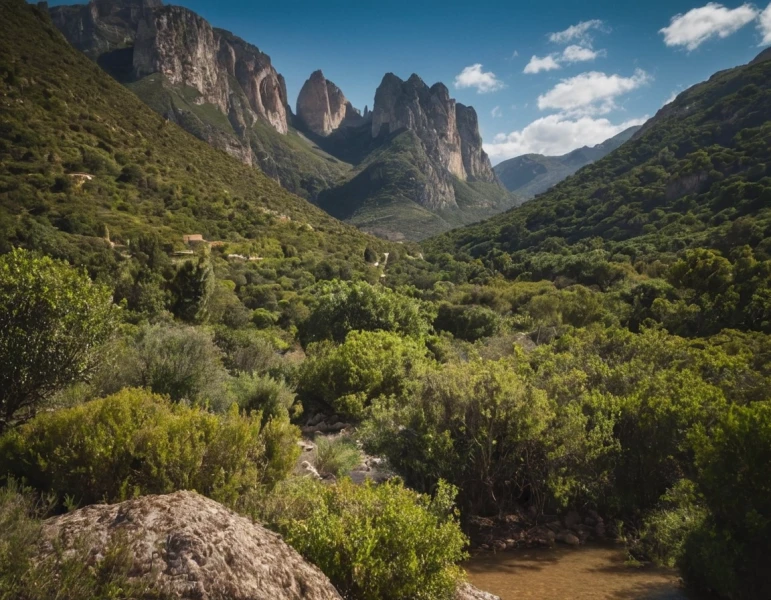Educa UNIVERSITY|SCIENCE AND ENGINEERING
Ministry of Ecological Transition: Functions, Challenges and Experiences
Related Masters
Ministry of Ecological Transition: Functions, Challenges and Experiences
Did you know that the Ministry of Ecological Transition is the guardian of Spain's green future?
I didn't either a few years ago, but here I am, writing this article after having experienced firsthand how this ministry transforms our lives.
I am Pablo García, and I want to tell you what I have learned about this fascinating topic. I warn you: this is not your typical school science class. Here we talk about reality, about what this body does (or should do) for our planet, for our communities and for our economy.
What exactly is the Ministry of Ecological Transition?

First, let's clear up doubts. The Ministry for Ecological Transition and Demographic Challenge (MITECO) is the body in charge of directing Spain's policies towards a sustainable model. This includes everything from protecting the environment to ensuring clean energy development, combating climate change and curbing rural depopulation. That's nothing, right?
This ministry was born in 2018, in response to growing social demands and international commitments, such as the Sustainable Development Goals (SDGs) and the Paris Agreement. It is designed to integrate environmental, energy and social issues into the same national strategy.
What does the Ministry for Ecological Transition do?
Here comes the interesting part. This ministry has an extensive list of functions, and all are vital to ensure a sustainable future. I'll highlight the main ones:
Sustainable energy policies:
Its mission is to promote renewable energy (goodbye coal!) and improve energy efficiency. Did you know that Spain is a European leader in solar energy?This ministry is behind that success.
Water and coastal management:
Controls water resources and protects the coastline. This includes fighting marine pollution and managing watersheds.
Fighting climate change:
It is Spain's strong arm in the fight against global warming, implementing laws such as Climate Change and Energy Transition.
Biodiversity protection:
From saving endangered species to restoring ecosystems, this is one of its most visible tasks.
Rural depopulation:
Yes, it's not all about nature. The ministry also has the challenge of revitalizing villages that are becoming empty. A Spain without people in its countryside is not sustainable.
My personal experience with the Ministry
I'll be honest: I was skeptical at first. I'm in environmental consulting and, like many, I saw MITECO as another slow cog in the bureaucracy. But in 2021 I worked on a project related to energy transition in rural communities, and my perception changed.
What did I learn That this ministry has a team of passionate people, even though they often fight against limited resources and a mountain of red tape. But I also saw the direct impact of their work: a community that used to rely on diesel now runs on solar panels and has constant drinking water.
Current challenges for the Ministry
Not everything is a bed of roses. MITECO faces enormous challenges:
The energy crisis:
In 2023, we live in a global crisis with skyrocketing energy prices. Although the ministry has made efforts to regulate them, the full transition to renewables takes time.
Accelerated climate change:
Droughts, heat waves and stronger storms complicate their work. How to balance immediate measures with long-term goals?
Social and political pressure:
Many want quick results, but this ministry works at a more leisurely pace due to the complexity of its projects.
Persistent rural depopulation:
Revitalizing depopulated areas depends not only on infrastructure, but also on changing mentalities. And that's not easy.
How does this ministry affect your life?
You may be thinking: "This is all very well, but how does it affect me?" Well, much more than you imagine:
- Your electricity bill: Thanks to MITECO, many homes have access to renewables, which lowers costs in the long run.
- The air you breathe: Fewer emissions means fewer respiratory diseases.
- Your vacations: They protect beaches and national parks, so you can enjoy them safely.
How can you contribute?
Because yes, this is not just the government's job. You can do something too. For example:
- Switch to renewable energy if you have the opportunity.
- Reduce your carbon footprint.
- Support green public policies.
Conclusion: Is it perfect? No. Is it necessary? Without a doubt!
The Ministry for Ecological Transition is not perfect, but it is a giant step towards a better future. My experience has taught me that every project, no matter how small, counts.
So the next time you see a aerogenerator or enjoy a clean beach, remember: behind that is a group of people working hard so that you and I have a livable planet. And that, my friend, is priceless.
Faculties
Trainings
The faculties embrace diverse academic disciplines and fields of study, opening doors to new perspectives and exploring different spheres of wisdom in a constantly evolving world.














